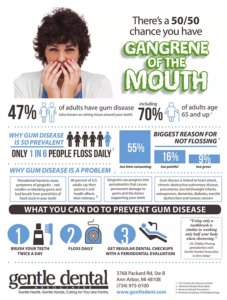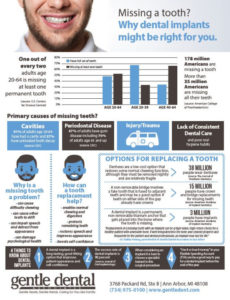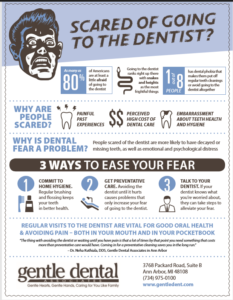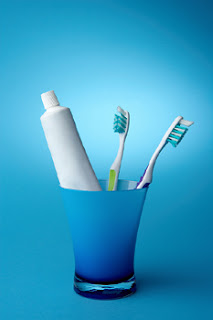This mouth condition afflicts 1 in 4 people. Do you have it?
May 15th, 2019
Do you have trouble swallowing certain foods? Are you constantly thirsty? Is your saliva thick or foamy? Do you have bad breath?
If you answered yes to any of these questions, you may have xerostomia. It’s a fairly common problem, and it could lead to serious health issues down the road if it’s not addressed by a dentist soon.
One of every four people has xerostomia, also known as dry mouth. It’s caused by decreased saliva production, which can happen as you age or as the result of an underlying health condition. The lack of saliva can hamper your quality of life in a variety of ways, and it also may cause damage to your teeth.
“In the absence of saliva, you’re going to be at higher risk of dental decay,” said Patricia Robinson, team-leader dental hygienist at Gentle Dental Associates in Ann Arbor. “I see this occurring quite a bit with my patients.”
Saliva is the mouth’s first defense against cavities, rinsing teeth of the bits of food that can lead to the growth of bacteria. But for many people, saliva production declines as they get older. And that can lead to xerostomia, or dry mouth.
Dry mouth often is uncomfortable, making it difficult to eat and digest certain foods. It can make it hard to taste and enjoy meals, and it can give you bad breath. In extreme cases it can even cause painful cracks and sores in the mouth and leave your tongue, lips and other tender tissues parched.
More significantly, dry mouth increases your risk of chronic and pervasive tooth decay because there’s not enough saliva to flush icky bacteria from your mouth.
So, what can you do about it?
“Bring your concerns to your dentist or your dental hygienist,” Robinson said. “We’ll look at the symptoms and signs and make some suggestions.”
RELATED: How do I avoid bad breath?
For example, here are 10 things you can do to counteract dry mouth:
- brush and floss your teeth every day to reduce bacteria buildup on your teeth
- chew sugarless gum to stimulate your salivary ducts and increase saliva production
- drink plenty of water to keep your body hydrated
- use fluoride toothpaste to reduce risk of cavities
- avoid dry foods such as bread, crackers and dry, salty snacks
- limit caffeine and alcohol – even mouthwash with alcohol – because they reduce saliva production
- breathe through your nose instead of your mouth
- use lip moisturizers to relive drying and cracking
- sleep with a humidifier in your room to keep the air from getting dry
- visit the dentist regularly for exams
RELATED: I drink a lot of coffee. Could it be hurting my smile?
Saliva production tends to decline in people after age 65, so dry mouth is more common in older people. Dry mouth also can be a side effect of medications or cancer treatment and can be a byproduct of smoking.
In addition to constant thirst, bad breath, foamy saliva and difficulty swallowing, other common symptoms of dry mouth include an irritated tongue, burning mouth, dry lips and nasal passages, sore throat, hoarseness and cavities.
Your dentist will look for symptoms of dry mouth and can prescribe medicine or other products to ease the inconvenience and prevent tooth decay. If you are dealing with dry mouth, call 734-975-0100 to schedule an appointment that will improve your quality of life and prevent painful dental problems before it’s too late.







 One of the most common questions we hear is, “is there a difference between a dental implant and a dental bridge?”
One of the most common questions we hear is, “is there a difference between a dental implant and a dental bridge?”


 Website Powered by Sesame 24-7™
Website Powered by Sesame 24-7™